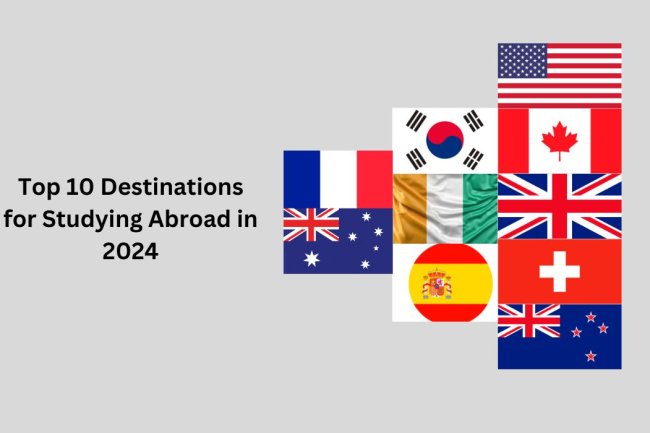From psychology to digital arts and sustainability, discover the top non-STEM courses gaining popularity among students worldwide and their career scope.

For years, STEM—Science, Technology, Engineering, and Mathematics—has been the most preferred path for students aiming for high-paying and secure careers. From coding to engineering degrees, the world seemed to suggest that success equates to STEM proficiency. However, the educational landscape is undergoing significant changes. Today, fields such as digital arts, behavioral sciences, and environmental studies are emerging as popular choices, opening doors to unique career opportunities that were previously underestimated.
The rise of non-STEM courses reflects a broader cultural and educational shift: students no longer view degrees solely as a ticket to financial security. Instead, they are seeing education as a tool to explore passions, address global challenges, and develop versatile skill sets applicable across industries.
Why Look Beyond STEM?
- Changing Job Market Dynamics
Today’s job market isn’t just about technical know-how. Employers are increasingly seeking individuals who can communicate effectively, think creatively, and adapt to change. While STEM skills are still important, many careers—especially in fields like the creative arts, policy-making, and social innovation—thrive on strong non-STEM expertise. - Interdisciplinary Opportunities
Technology is becoming a part of almost every field today. Whether it is psychology, media, or environmental science, students are now using data analytics, AI tools, and digital platforms in their studies. This blend is helping bridge the gap between STEM and non-STEM disciplines, creating new opportunities for learning and careers. - Focus on Personal Passion and Well-being
Students today are placing greater importance on mental health, work-life balance, and overall job satisfaction. Instead of simply following STEM trends, many are choosing careers that align with their personal interests—often finding more fulfillment and long-term success in the process.
Trending Non-STEM Courses Gaining Popularity
While traditional courses in arts and social sciences have always existed, specific, specialized non-STEM fields are now witnessing a surge in student enrollment:
-
Digital Marketing and Communications
With the increasing popularity of social media, e-commerce, and online branding, companies now actively look for professionals who understand digital marketing, content strategy, and data-driven communication. Students entering this field learn to work with tools like social media analytics, SEO, branding, and storytelling—skills that are not only in high demand but also highly marketable in today’s economy.
Career Opportunities:
- Brand consultant
- Social media strategist
- Content creator
- Digital marketing manager
Top Universities:
- University of Southern California (USA)
- National University of Singapore (Singapore)
- Trinity College Dublin (Ireland)
- University of Amsterdam (Netherlands)
- University of Melbourne (Australia)
-
Psychology and Behavioral Sciences
Understanding human behavior plays an essential role in many areas—from workplaces to healthcare. Psychology students explore how we think, feel, and act, building strong analytical and interpersonal skills that open doors to many different careers.
Career Opportunities:
- Market researcher
- Clinical psychologist
- Counselor
- Organizational psychologist
Top Universities:
- University of Cambridge (UK)
- University College Dublin (Ireland)
- Stanford University (USA)
- University of Toronto (Canada)
- Nanyang Technological University (Singapore)
-
Creative Arts, Design, and Multimedia
Creative disciplines like fashion, animation, graphic design, and multimedia are drawing students who want to blend imagination with technology. With the increasing demand for eye-catching content, these careers are not just exciting—they’re rewarding and full of ever growing opportunities.
Career Opportunities:
- Visual storyteller
- UX/UI designer
- Fashion consultant
- Animator
Top Universities:
- Central Saint Martins (UK)
- National College of Art and Design (Ireland)
- LASALLE College of the Arts (Singapore)
- Politecnico di Milano (Italy)
- Savannah College of Art and Design (USA)
-
Environmental Studies and Sustainability
As climate change and sustainability becomes the point of focus, more students are drawn to environmental studies courses that combine community impact, science and policy. This field prepares graduates to tackle compelling global challenges like renewable energy, conservation, and sustainable development. Students gain skills in data analysis, environmental policy, and ecological research, making them valuable across industries.
Career Opportunities:
- Conservation scientist
- Policy analyst
- Environmental consultant
- Sustainability officer
Top Universities:
- Stanford University (USA)
- National University of Singapore (Singapore)
- Wageningen University & Research (Netherlands)
- University of British Columbia (Canada)
- University College Cork (Ireland)
-
Education and Pedagogy
The education sector is changing faster than ever. Today educational courses are no longer limited to traditional methods—they now open doors to specializations like educational technology, curriculum design, and special education.
These pathways don’t just train teachers—they prepare passionate educators who can meet the unique needs of every learner and shape the future of education with care and creativity.
Career Opportunities:
- Curriculum Designer
- Educator
- Instructional Coordinator
- Education Consultant
Top Universities:
- Harvard Graduate School of Education (USA)
- Trinity College Dublin (Ireland)
- UCL Institute of Education (UK)
- University of Melbourne (Australia)
- Nanyang Technological University (Singapore)
The Interdisciplinary Edge
One of the most captivating aspects of non-STEM courses is their interdisciplinary nature. Many programs integrate parts from technology, humanities, and business, allowing students to develop a holistic understanding of complex problems. For instance:
- Environmental policy students may combine ecology, economics, and political science to address climate change.
- Digital marketing students use a mix of data analytics, psychology, and communication theory to optimize campaigns.
- Creative arts students incorporate emerging technologies like AR/VR to innovate in storytelling and design.
- Urban planning students might combine architecture, sociology, and environmental engineering to redesign sustainable cities.
- Forensic science combines criminal law, biology, and psychology to support criminal investigations.
Conclusion
The increasing popularity of non-STEM courses shows how students' choices are changing. Education today is not only about mastering technical skills—it is also about building creativity, empathy, adaptability, and the ability to think in new ways.
As disciplines blend, the future of learning is moving toward flexibility, personalization, and interdisciplinary exploration. Students who step into non-STEM fields are not just “trying something different.” They are building diverse skill sets, learning how to connect ideas across industries, and developing a mindset that encourages innovation and meaningful impact.
Choosing a path beyond STEM is no longer a gamble—it is a smart, future-focused decision that leads to meaningful careers and a purposeful life. At ACHIVIA, we set the benchmark with unmatched guidance, holistic support, and the confidence every student needs to achieve their dreams.
Start your journey and find your path to your success—with ACHIVIA by your side.
Call us today and take the first step toward the future you dream of!
What's Your Reaction?




















